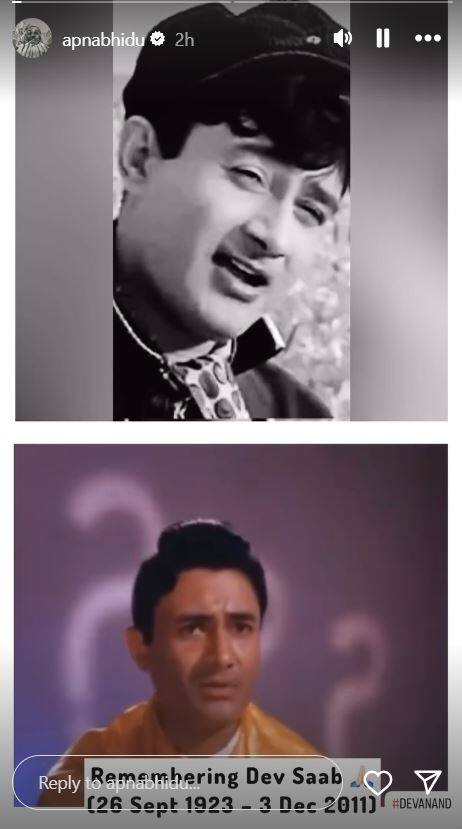Jackie Shroff pays tribute to Dev Anand on 13th death anniversary: On Dev Anand’s 13th death anniversary, observed on December 3, veteran actor Jackie Shroff paid a heartfelt tribute to the legendary icon.
Jackie Shroff shared a video montage on Instagram featuring some of Dev Anand’s most memorable moments from his films, including Johny Mera Naam, the song Main Zindagi Ka Saath Nibhaata Chala Gaya, and iconic sequences from Aankhon Hi Aankhon Mein and Khoya Khoya Chand.
In the caption, he wrote: "Remembering Dev Saab 26 Sept 1923 - 3 Dec 2011."

About Dev Anand: The Legend
Dev Anand, fondly remembered as the “Evergreen Star” of Indian cinema, remains an enduring icon for his unparalleled charisma, boundless energy, and trailblazing contributions to Bollywood. Born on September 26, 1923, in Gurdaspur, Punjab, Dev Anand’s journey to stardom began with humble aspirations but quickly escalated into an illustrious career spanning over six decades.
A Pioneer of Style and Substance
Dev Anand was not just an actor; he was a style icon who redefined the essence of screen presence. His unique mannerisms, charming smile, and romantic aura captivated audiences, earning him a fan following that transcended generations. Known for his dapper fashion sense, he set trends with his suave hairstyles, crisp suits, and scarves, influencing both contemporary and future stars.
Milestones in Film
After his debut in Hum Ek Hain (1946), Dev Anand garnered widespread recognition with Ziddi (1948), a box-office hit that established him as a leading man. His association with Guru Dutt and later Vijay Anand as directors led to timeless classics like Baazi (1951), regarded as a precursor to Bollywood’s “noir” genre, and Guide (1965), hailed as one of Indian cinema's finest films for its progressive narrative and emotional depth.
A Versatile Performer
Dev Anand’s filmography is a testament to his versatility as an actor, seamlessly transitioning between romantic dramas like Hum Dono and Tere Ghar Ke Samne to thrillers like Jewel Thief and C.I.D.. He also explored socially relevant themes in Kala Pani and Hare Rama Hare Krishna, the latter addressing the challenges of youth rebellion and drug addiction in a rapidly changing world.
As a Visionary Filmmaker
Dev Anand didn’t just shine in front of the camera but also behind it. As a producer and director under the banner of Navketan Films, which he co-founded with his brother Chetan Anand in 1949, he introduced a new wave of storytelling and nurtured fresh talent. He collaborated with top musicians like S.D. Burman, R.D. Burman, and lyricists like Sahir Ludhianvi, creating a treasure trove of unforgettable songs that remain timeless.
Awards and Accolades
Dev Anand’s contributions earned him several prestigious awards, including the Padma Bhushan in 2001 and the Dadasaheb Phalke Award in 2002, India’s highest recognition in cinema. His films were not only box-office successes but also culturally significant, leaving an indelible mark on Indian cinema.
Legacy
Dev Anand’s infectious optimism and relentless passion for cinema ensured he stayed active until the very end. Even with his last film, Chargesheet (2011), he continued to experiment with storytelling and themes. His death on December 3, 2011, marked the end of an era, but his legacy lives on in the hearts of cinephiles and in the annals of Indian cinema.
Dev Anand remains a beacon of inspiration for aspiring artists, epitomizing the essence of timeless creativity, innovation, and unyielding love for the craft of cinema.


